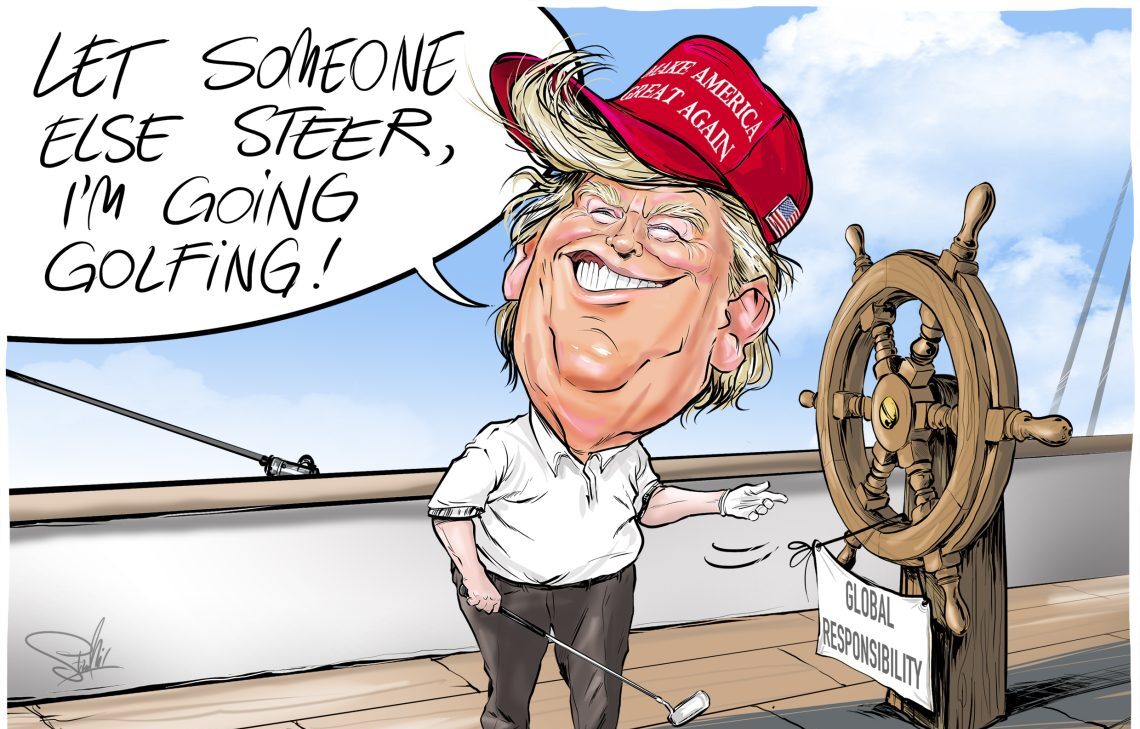‘Trump shock’ for the world economy
This week, all key finance ministers and central bank governors are gathering in Washington for the annual meetings of the International Monetary Fund (IMF) and World Bank. These two supranational institutions were created out of the Bretton Woods agreements, which sought to provide a financial and economic framework for the global economy. That system was, on one hand, multipolar, yet ultimately anchored to the United States dollar. The political and economic strength of the U.S. underpinned its functioning.
Like any system, it faced crises. One of the most significant paradigm shifts occurred when U.S. President Richard Nixon (1969-1974) unilaterally ended the gold standard – the dollar’s convertibility into gold – on August 15, 1971. Rising inflation, driven by mounting public debt, plagued the U.S. economy. Combined with a persistent trade deficit, this led to an overvalued dollar, which lost significant value in the first two quarters after the move.
Ending the gold standard – arguably necessary at the time – was accompanied by aggressive measures: wage and price freezes, as well new import tariffs, introduced by the Nixon administration to curb inflation and reduce the current account deficit. In the years that followed, the global monetary system evolved into today’s floating exchange rate regime.
Despite this disruption, the IMF and World Bank endured. One of their most important roles today is offering an annual platform for global decision-makers to collaborate on economic policy.
This year, however, that spirit of multilateralism may be sidelined. Being held in Washington, the meetings will likely become an opportunity for one-on-one negotiations with the U.S. government on tariffs rather than coordinated global dialogue.
Just as the so-called “Nixon shock” of the early 1970s responded to the economic realities of the preceding decades, today we may be witnessing a “Trump shock.” But unlike then, the global economic, financial and monetary landscape is far more precarious.
Living at the expense of future generations
In 1971, national debts were measured in millions and billions. Today, they are counted in trillions. The underlying truth remains: excessive debt is lethal. This is the real concern facing the delegates in Washington. A new tariff shock could spark a crisis that exposes the illusion that public debt does not matter. Theories such as Modern Monetary Theory, along with government and supranational strategies, cannot mask this forever.
Blaming inequality for today’s economic and social problems is likely a deliberate distraction to justify excessive government spending and high taxation. Rather than focusing on redistribution, the goal should be to boost overall prosperity by strengthening the private sector. Yet that sector has been deprived of capital through heavy taxation, stripped of talent by an ever-expanding public workforce, and stifled in innovation and creativity by overregulation.
We should not forget that every person employed in government is a person not creating value in the productive economy, and yet their salary must be paid by that same economy through taxes. This is not a criticism of dedicated civil servants, but when public administration grows unchecked – as it has in many countries – it becomes a serious problem.
We have exhausted the reserves built up in the past and are now living at the expense of future generations. This will have consequences. This latest tariff shock may not be the trigger, but a reckoning is coming. The longer we delay, the worse it will be.
Whether or not tariffs make sense in themselves, they serve as a wake-up call. National governments obviously do not have an income problem. They already extract every last penny from citizens and businesses. The problem lies on the spending side. A fundamental rethinking of the state’s role in society and the economy is needed.
Rather than using the IMF and World Bank platform to confront the real issues head-on and push governments to downsize meaningfully, leaders are scrambling for individual deals with the U.S. That strategy might work in the short term, but it merely postpones the inevitable.
This comment was originally published here: https://www.gisreportsonline.com/r/trump-shock/
































